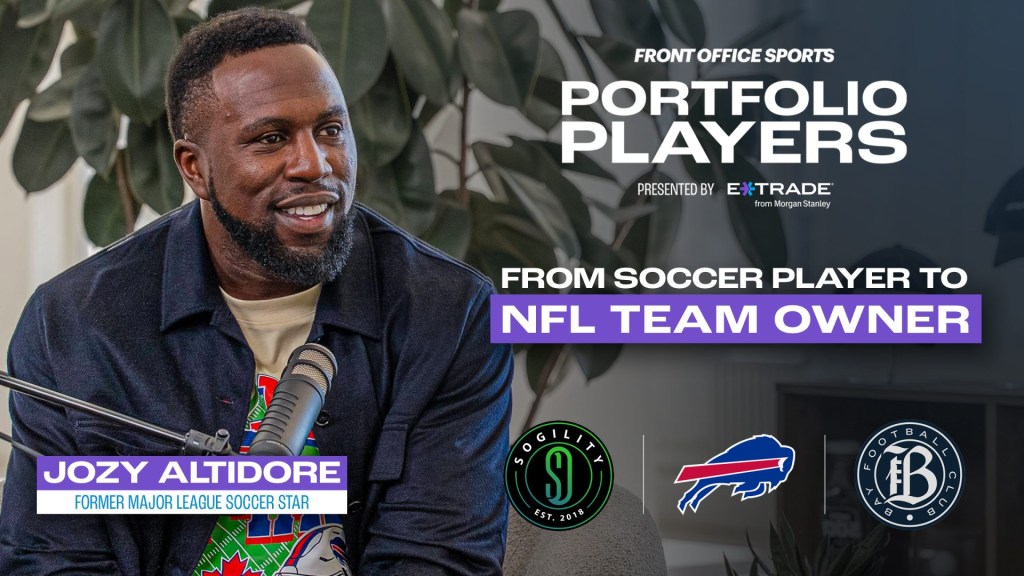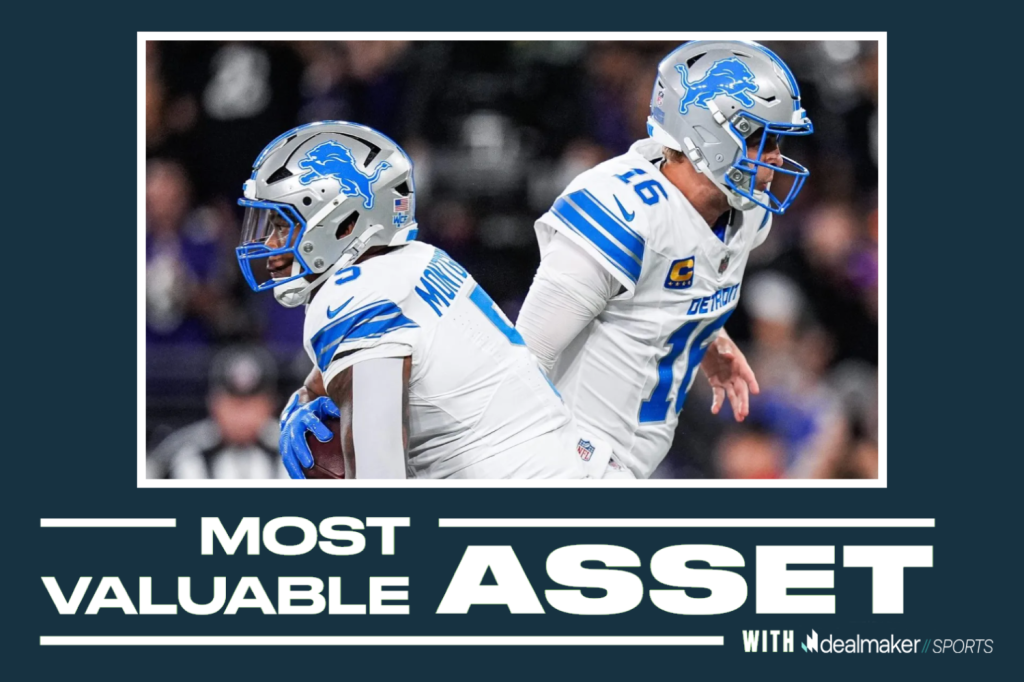Morning Edition |
September 24, 2025 |
|
|
The NFL is heading to Dublin this weekend, but don’t expect a Super Bowl overseas anytime soon.
—Eric Fisher and David Rumsey
|
|
|
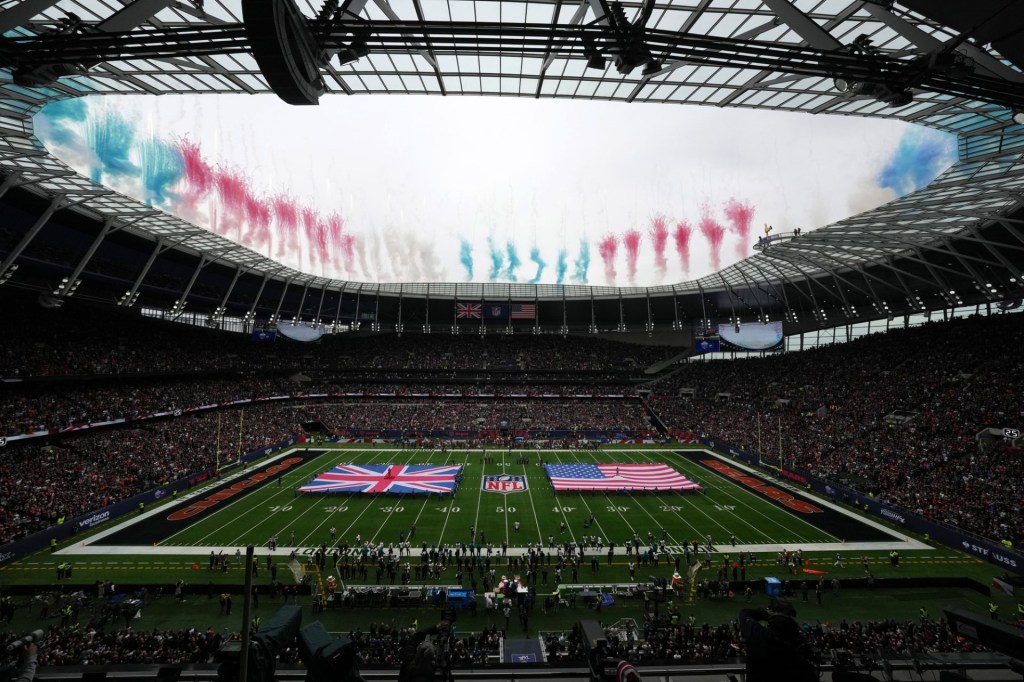
As fervor rises further around the notion of a Super Bowl held outside the U.S., the NFL is pumping the brakes somewhat on the idea.
The league will resume its record-setting slate of international games Sunday with a game at Dublin’s Croke Park between the Vikings and Steelers, marking the NFL’s first regular-season game in Ireland. While detailing that matchup, NFL EVP of club business Peter O’Reilly said an international Super Bowl is not imminent.
“We’re clearly focused on the near term with Super Bowls in the U.S., given the great demand on the great impact of those Super Bowls in the U.S.,” O’Reilly said in a teleconference.
The next three Super Bowls are set, respectively, for the Bay Area, Los Angeles, and Atlanta. Las Vegas, the 2024 host, is actively negotiating with the NFL for a return in 2029. Beyond that, the forthcoming wave of new stadium development across the league will impact decisions for the early 2030s, and officials in Washington, D.C., are already eyeing a Super Bowl there after finalizing funding last week for a forthcoming Commanders stadium.
Discussion around an international Super Bowl, however, rose again last month when Peter Mandelson, then the U.K. ambassador to the U.S., said at a conference in Chicago that he was developing a full-fledged effort to bring the game to London. Those comments advanced upon those made last year by NFL commissioner Roger Goodell, who said, “It wouldn’t surprise me if that happens one day,” as well as similar enthusiasm from London Mayor Sadiq Khan.
Since then, though, Mandelson has been fired from his political post amid revelations of his connections to convicted sex offender Jeffrey Epstein. The NFL, meanwhile, is continuing a broad-based effort to develop fandom around the world, particularly through its Global Markets Program. It also does not have immediate plans to bring other tentpole events, such as the NFL Draft and Pro Bowl Games, to international markets.
“I think we explore all of those things,” O’Reilly said. “There’s nothing imminent in terms of an international event for one of those right now. But we look at all of that.”
Irish Factors
The Dublin game is the second of seven scheduled international games this year, following the Week 1 game in Brazil between the Chiefs and Chargers that generated plenty of controversy regarding viewership on YouTube. After the matchup in Ireland, games will be held in London in each of the subsequent three weeks, followed by a Nov. 9 game in Berlin between the Falcons and Colts, and one on Nov. 16 in Madrid between the Commanders and Dolphins.
Initial ticket purchasing patterns for the Dublin game have shown a higher proportion of U.S. fans compared to other NFL international games, with roughly a third of purchases coming from Ireland, a third from the U.S., and a third from elsewhere in Europe. The Steelers, however, have particularly strong roots in Ireland, in part through the Irish heritage of the team’s Rooney ownership family, and the late Dan Rooney’s former U.S. ambassadorship in the country.
|
|
|
|
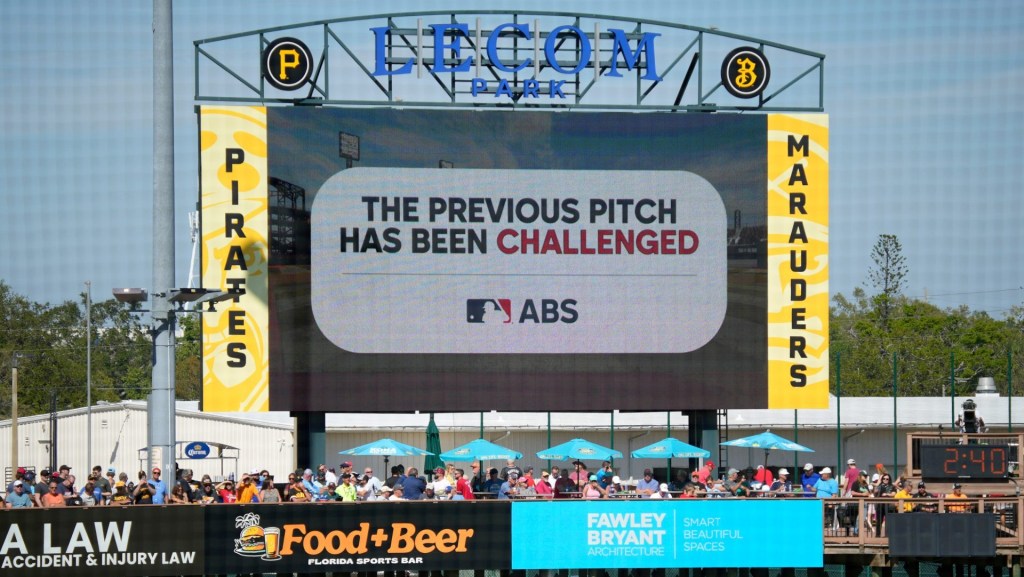
Another new era in Major League Baseball is unfolding as the sport’s joint competition committee approved the adoption of the automated ball-strike (ABS) challenge system, beginning in 2026.
Following more than six seasons of testing in minor leagues, in spring training this year at the major league level, and at the 2025 All-Star Game, the ABS technology that monitors pitch locations will be used as the basis to challenge calls made by human umpires.
Each team will receive two challenges to start a game, and successful challenges will be retained. Those challenges may be initiated by only a pitcher, catcher, or batter, and cannot be aided by anyone else, including coaches and other players. Pitch locations will be verified electronically compared to the batter’s strike zone, with the entire review process taking about 15 seconds.
More broadly, the implementation of the system next year follows a series of on-field changes overseen by MLB commissioner Rob Manfred, including the 2023 adoption of the pitch clock, larger bases, and a ban on extreme defensive shifts. The challenge-based ABS system, however, fundamentally retains the human element and core function of a home plate umpire, and that person will continue to call every ball and strike—despite the arrival of the ABS technology colloquially known as “robot umpires.”
In June at league meetings, Manfred signaled a strong preference for implementing ABS next year, heightening expectations that the system would indeed arrive for 2026, but at the time, the league was still working through various logistics with key constituencies.
“Throughout this process we have worked on deploying the system in a way that’s acceptable to the players,” Manfred said in a statement. “The strong preference from players for the challenge format over using the technology to call every pitch was a key factor in determining the system we are announcing today.”
The MLB Players Association, however, countered some of that sentiment, and said in a statement that “the vote of the players on the committee was not unanimous, which was reflective of the broad player sentiment.”
The joint competition committee includes six club owners, four active players, and an active umpire.
Broader Impacts
The implementation of ABS could lead to a reduction in game ejections, as more than 60% of such penalties over the last two seasons have related in some way to the calling of balls and strikes. Major league umpires currently call about 94% of pitches accurately, according to UmpScorecards, but those more rare deviations are what can now be specifically addressed with the challenges.
At the Front Office Sports Tuned In media summit last week, Manfred said the successful introduction of the new on-field rules in 2023, particularly the pitch clock, provided a key template for how to roll out big changes in baseball—concepts again applied with ABS.
“The process that we went through with that set of rule changes [then] was really instructive for the owners,” he said. “We relied on fan research at the outset, we did a ton of testing to make sure we had a really good feel for what was going to happen … and our predictions turned out to be very accurate. That gives you the ability to go back to owners and say, ‘We can change again.’”
|
|
|
|
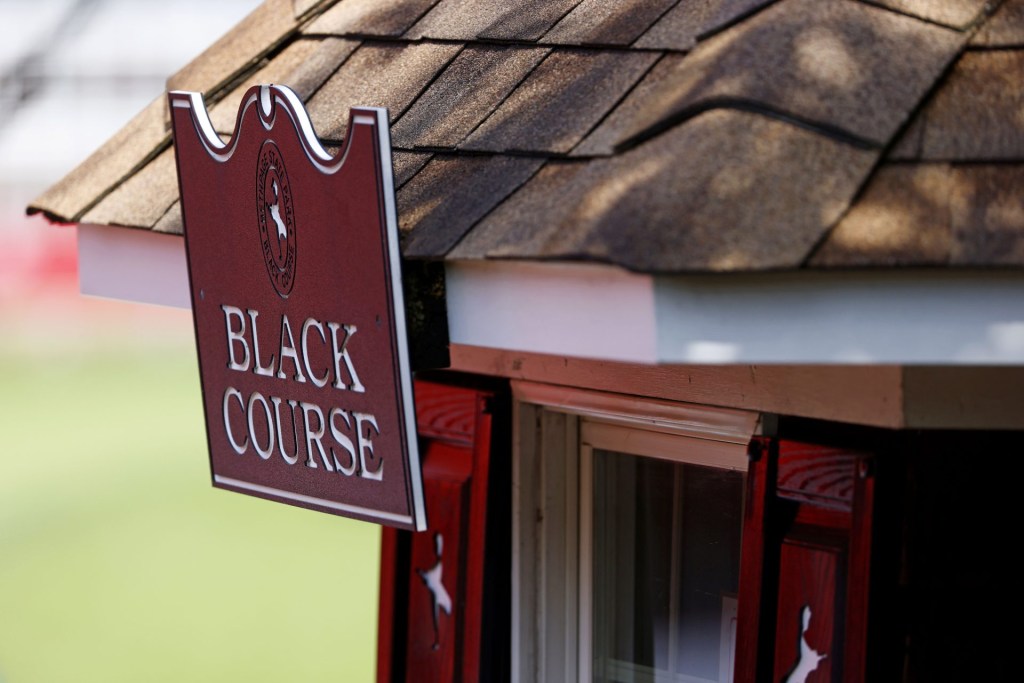
FARMINGDALE, N.Y. — As the Ryder Cup descends upon Bethpage Black Golf Course this week, residents of the unassuming Long Island communities surrounding the public track are cashing in big-time.
Farmingdale, where Bethpage is located, has a population of roughly 8,500, and the highly anticipated U.S. vs. Europe team golf competition is expecting crowds of 50,000-plus per day over the weekend. So, it’s no surprise the short-term rental market is booming well beyond the town’s borders.
In the weeks leading up to the Ryder Cup, which tees off Friday, Airbnbs and Vrbos that were still available in the area were going for as high as $30,000 for the four nights bookending the three-day event.
Booked revenue for short-term rentals this week in Farmingdale, Babylon, Bayshore, Brookhaven, Huntington, Islip, Patchogue, and Smithtown totals $2.12 million, which is up 345% compared to the same week last year, according to data provided to Front Office Sports by rental analytics company AirDNA.
Across Long Island, demand for short-term rentals is 87% higher than Sept. 23–28, 2024. In Farmingdale, specifically, the average nightly rate for the week is about $455, up 145% compared to last year.
From Georgia to New York
The impact the Ryder Cup is having on the Long Island short-term rental market is similar to what Augusta sees each April.
Short-term rentals in the Augusta area accounted for $8.5 million in booked revenue for the seven days surrounding The Masters this year, and an estimated $20 million throughout the entire month of April.
|
|
|
|

FARMINGDALE, N.Y. — Most, if not all, U.S. Ryder Cup team members will be donating their controversial $200,000 stipends this week to charity, but not many are revealing specific details about where that money is going.
“We like to do a lot of stuff in our local community, and I’ve never been one to announce what we do,” Scottie Scheffler said Tuesday of him and his wife, Meredith. “I don’t like to give charitable dollars for some kind of recognition.”
Last December, the PGA of America, which runs the Ryder Cup’s U.S. operations, approved the $200,000 stipends for players and increased a mandatory charity allocation from $200,000 to $300,000. That’s led to criticism from the European Ryder Cup team, which doesn’t think anyone playing the Ryder Cup should be paid, and others in the golf world.
“We have something planned for the money that we’ll be receiving,” Scheffler said. “I think it’s a really cool thing that the PGA of America has empowered us to do. I have a deep passion for the city of Dallas, I have a deep passion for the organizations that we support at home, and I’m excited to be able to take this money and be able to do some good in our local community.”
Giving Back
Xander Schauffele was similarly coy about his plans, other than announcing his money would go to charity, too.
“Being a product of the PGA Tour, if there’s one thing besides competing at a high level that’s taught me, it’s to sort of have a positive impact on the areas that you’re in, and I don’t see why this would be any different,” Schauffele said. “There’s a lot of pride that comes into playing in one of these, and yes, we’re happy to get paid for this, and yes, I plan on donating it. It’s something that selfishly will make me feel good about what I do.”
Patrick Cantlay is donating his entire $500,000 allocation to charitable causes with an emphasis on educational development for children of military veterans and first responders, including the First Responders Children’s Foundation and Folds of Honor. “One of the great things about these team events for me is there’s always such a big charitable component to it,” he said.
Captain Speak
U.S. captain Keegan Bradley admitted he’s not keen on revealing where he’s donating his money, either. “I think that’s a personal decision,” Bradley said Monday. “I don’t donate to charities to publicize what we’re doing. These guys on our team are incredible people, and they do a lot of incredible things with charity dollars and with their foundations. A lot of them aren’t comfortable sharing that sort of information, and I feel the same way.”
Bradley did detail how the stipend structure came together last year, though. “The PGA of America came to me; they wanted to bring the Ryder Cup into the present day,” he said. “The charity dollars hadn’t changed since 1999, and they asked me to sort of shepherd their way into making it into 2025.”
|
|
|
|
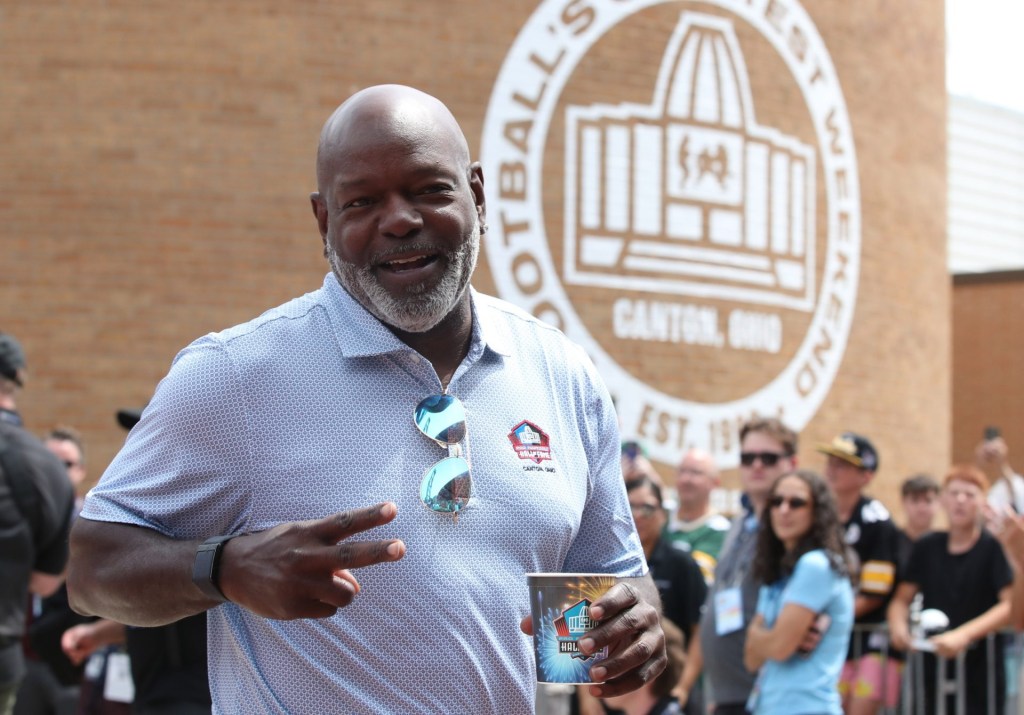 | Smith said the union is at its best when run by an ex-player. |
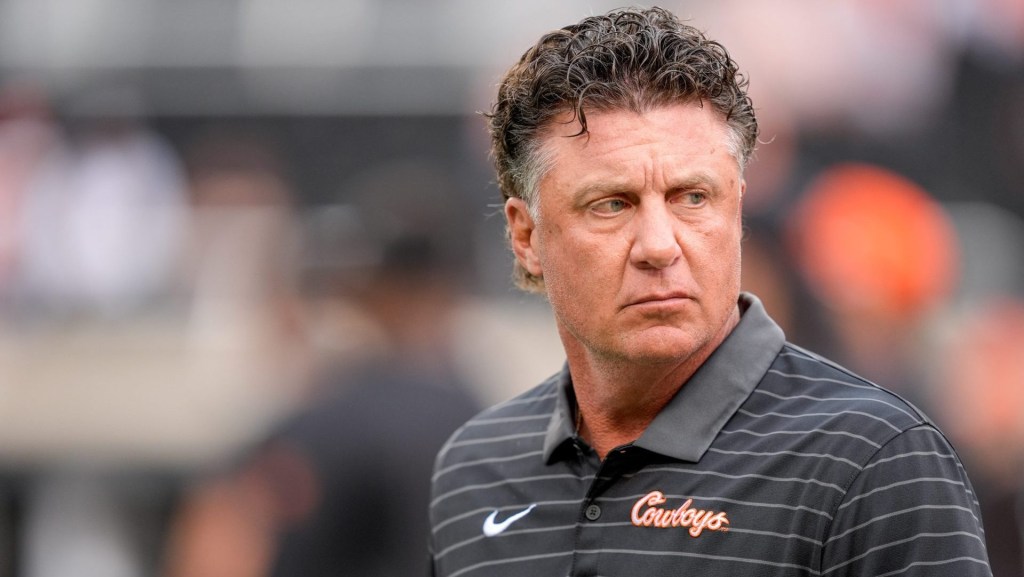 | The winningest coach in school history has 11 straight FBS losses. |
|
|
Would you rent out your home for a big return if a major sporting event came to town?
|
|
Tuesday’s result: Only 30% of respondents plan to watch Clemson vs. UNC despite both teams’ struggles.
|
|
|



